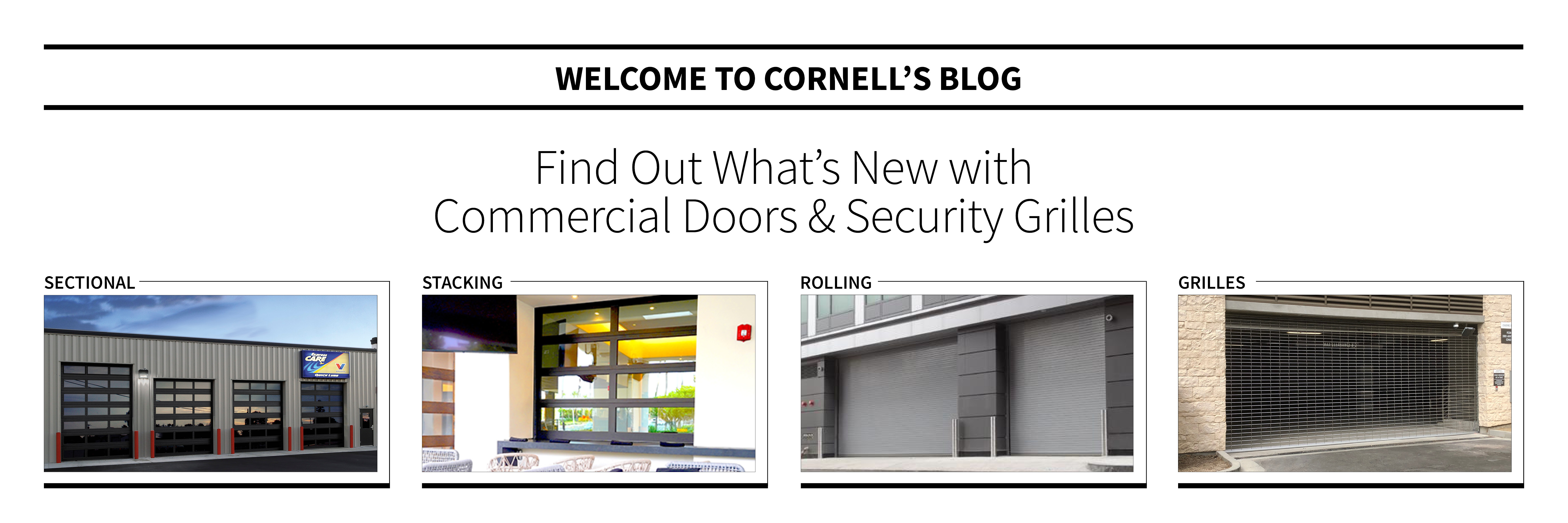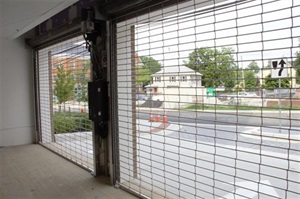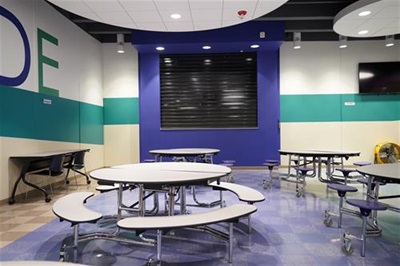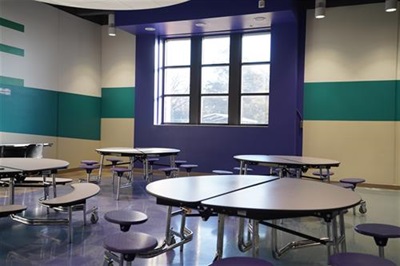

Cornell Commercial Rolling Doors and Security Grilles Blog
When it comes to Overhead Rolling Doors and Grilles, we are the experts in innovative door solutions!
Subscribe
Get updates on new blog posts to your inbox!
Wind Load Myths Debunked | Learn More - Cornell
Have you worked on projects that called for doors or grilles that had specific wind load requirements? If you answered “yes,” you’re probably familiar with some of the basics, such as the difference between design and test wind load and how wind load is calculated.
While understanding the basics is helpful, it is also beneficial to be aware of myths surrounding wind load requirements for rolling doors and grilles.

Wind Load Myth #1: Wind Load is Only Needed in Areas that Experience High Winds
Nope. Wind load can be required on any rolling door or grille based on building codes and occupant safety. Areas that experience more severe weather and wind gusts may have higher wind load requirements and result in higher wind load calculations for your security closures. The placement of a rolling door or grille may also have an impact on the wind load requirements. If rolling doors or grilles are listed in the spec on the corner of a building or on a higher floor, they may need a higher psf and special considerations when taking all 11 factors of the calculation into account.
Wind Load Myth #2: Rolling Grilles Never Have Wind Load Requirements
Not true. Wind load should be specified for rolling doors and grilles where necessary. Many people believe wind blows right through security grilles, but that is not the case. Air pressure from wind gusts can build up in rolling grilles and push them completely out of the guides, or even worse, build up pressure in your building and also keep the grille in the open position – leaving the facility vulnerable.
Wind Load Myth #3: Wind Load Requirements are the Same Across the U.S.
This is false. Wind load requirements for rolling doors and grilles vary by region across the U.S. Some areas, such as Tornado Alley and southern states like Florida, have different and more intense requirements because of the severe weather events they regularly face.
Wind Load Myth #4: All Testing for Wind Loaded Doors and Grilles is the Same
Wrong! Just like wind load requirements and building codes differ by region, testing for wind loaded doors and grilles differs, too. For example, in Florida, two main types of testing are the Florida Product Approval and the Miami-Dade Notice of Acceptance (NOA). While both regulate specifications for buildings and the products used to construct facilities, they are not the same.
This is also true for impact testing, including the ASTM E1996, which is the standard specification for performance of exterior windows, curtain walls, doors, and impact protective systems impacted by windborne debris in hurricanes and TAS 201-94, which is the protocol covering procedures for conducting the impact test of materials as required by Section 1626 of the Florida Building Code, Building.
Wind Load Myth #5: If I Create a Specification Based on ICC 500, it Will Match the FEMA 361 requirements.
Not quite. The International Code Council (ICC) 500 is the standard for the design and construction of storm shelters, while Federal Emergency Management Agency (FEMA) 361 are federal guidelines for the design and construction of safe rooms. While they are similar in nature, there are a few distinct differences between ICC 500 and FEMA 361 standards.
FEMA defines a FEMA Safe Room as “an interior room, a space within a building, or an entirely separate building, designed and constructed to provide near absolute life-safety protection for its occupants from tornadoes or hurricanes.”
All safe room criteria in FEMA-361 meet the storm shelter requirements of ICC 500, but FEMA P-361 includes design and performance criteria that are a bit more conservative than those in ICC 500.
Wind Load Myth #6: There Aren’t Funding Opportunities Available for Storm Shelters, Including Wind Loaded Products
Not at all. FEMA offers a hazard mitigation grant program for eligible mitigation measures that reduce disaster losses.
Federal funding is only available for safe rooms that not only meet the ICC-500 requirements, but also the FEMA P-361 guidelines. The main differences have to do with coastal flooding and first aid kits, but it is important to ensure that any component of the storm shelter meets both sets of guidelines.

Wind Load Myth #7: You Should be More Concerned with the Cost of a Wind Loaded Product than with Preventing Injuries and Saving Lives
We wanted to give you an easy one for the last myth. Preventing injuries and saving lives should be your top priority when specifying wind loaded doors or plans for constructing a storm shelter. Some products may be more expensive than the typical – but remember, these aren’t your regular, run-of-the-mill closures. They’re fortified to protect people in emergency situations and tested to ensure safety, which means a higher price tag at times. But when lives are on the line and a tornado warning is blaring, do you really want to be worried about the quality or safety of the closures on the storm shelter you specified?

Contact us for more information and guidance on wind loaded products today!





